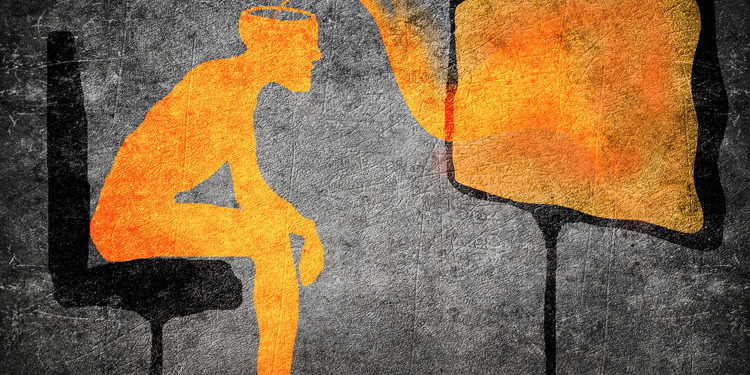Introducing Google TV Rank: Your Television as a Ranking Signal
BY Cara Tucker

LISTEN
This September, Google was granted a new patent that could shape the future of search engine algorithms in exciting ways. Better yet, much of the technology that patent might need is already in use in Google's services.
Over the years, Google has found more and more ways to bring a user's offline behavior online, using the information it gathers to create more sensitive ranks in its search results. The new patent in question, invented by Google engineers Kyle Maddison and Roman Kirillov, would allow Google to watch TV with you on your couch, then use what's playing to inform results for your searches.
You can already see the base on which the patent will build. Google Now, a newer part of Android's setup, provides the user with sets of "cards" that display bits of relevant information throughout the day.
You can already ask your Android device to "Listen to TV" to provide you with cards related to what's playing.
Some cards function in a very straightforward way: Google Now might, for example, determine your location via its Maps services, then deliver a card with local weather. If you search for a sports team's record or player info, Now offers you a card with scores each time that team is playing. You can dismiss Cards that aren't relevant, and you can request those you'd like to see if the system hasn't produced them automatically.
Now's TV information card represents a significant leap forward in that line of thinking. If you have a wifi-enabled TV, Google can "listen in" as you watch, tossing you cards with information about the show playing, the actors on it, reviews of it, etc. It works just as well for movies, and the program is impressively sensitive and capable.
Since its inception, Google's search engine has sought to provide users with intelligent feedback for queries. Over time, that idea has become more sophisticated both in intention and in algorithm. Google has overwhelmingly dominated its search engine competitors for years; part of what sets the service apart is a dedication to finding information with the best of computer technology in response to natural human inclinations and instincts.
Google engineers worked hard to ditch Boolean requirements and ignore keyword-stuffed pages, instead offering a service that predicts all the things it thinks a user might have meant, tried to remember or had in mind when he or she typed in a search request. Similarly, the search engine tries to attend to more than just what is typed, factoring in a user's geographic location, history of other searches, browsing habits and more to offer the best possible pages of results.
With existing cards and Google's overarching technology goals in mind, it may be possible to predict where the new patent fits in. With development, it could allow Google to use input from audio -- in this case, what it listens to on your TV -- to help customize and optimize your search results.
In the patent text, Google provides a simple example. If Top Gun, for example, is airing in your area at the moment, featuring a segment on a particular model of Porsche, and you grab your phone and search "Porche" on Google, the new ranking system could assume that you want to know more about what you're watching -- and rank results on the model of car featured in the program above those about the company in general.
In simple terms, the patent could add new subtlety to TV-sensitive response. Instead of responding directly to a program in front of a Google device, the technology could wind information from locally airing TV and program you are currently watching into the complex calculations it uses to bring you results for your searches. In the patent documentation, Google outlined how the new element might enter its algorithm's flow.
If you'd rather not let Google watch you watch TV, no cause for concern. The feature, like most of Google's algorithm adjustments, can be refused (though some more easily than others).
The technology won't necessarily rely on listening to your personal TV as the current Google Now features do. It could also incorporate the TV schedule for cable, satellite and public broadcast in your geographic area, building on its existing location tools. Whatever emerges will probably involve both elements, especially as more Americans cut their cable cords in favor of online, on-demand services like Hulu and Netflix, which follow no set broadcast schedules.
Those who work in patent law already know how long it can take for a patent to be granted by the USPTO. Google filed for this patent in the summer of 2011, and it was granted to them on September 16 of this year. Since the "idea" itself is already three years old, it's safe to assume that Google is already stepping beyond it with more complex developments. Early in 2012, for example, Google filed another patent for voice-controlled TV search features that would allow a user to control a Google-TV-equipped television with speech, requesting airing times and even playing a given program.
If you're curious about the details of the patent itself, the full text is available online through the USPTO database. The patent travels under the less-than-snappy title "System and method for enhancing user search results by determining a television program currently being displayed in proximity to an electronic device."
LATEST STORIES



